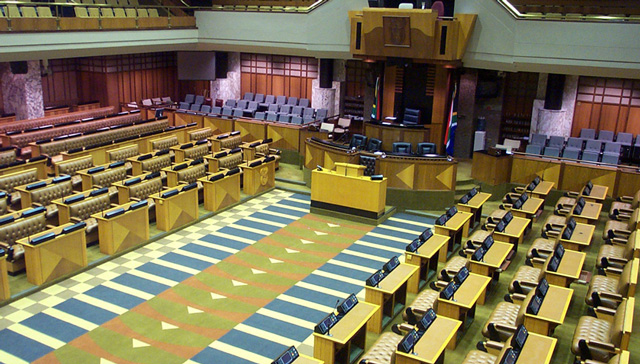
The supreme court of appeal has ruled that the signal jamming during last year’s state of the nation address was unconstitutional and unlawful.
A signal jammer was activated by the department of state security, supposedly for security reasons, and made it impossible for the media to report from the national assembly because all cellphone and internet signals had been blocked.
Following these events, the South African National Editors’ Forum, Media24, the Right2Know Campaign, Primedia and the Open Democracy Advice Centre asked the court to declare parts of parliament’s broadcasting policy unconstitutional. The media also wanted the court to declare the use of a signal blocker during the state of the nation address illegal.
The court ruled in May that parliament may restrict media access to its proceedings and that it had not acted illegally by using the signal blocker.
However, the ruling was not unanimous and leave to appeal was granted. Judge Kate Savage differed from judges Daniel Dlodlo and Robert Henney and delivered a judgment that deviated strongly from the court’s ruling.
Savage found that parts of parliament’s broadcasting policy, the way the state of the nation was broadcast and the use of a signal jammer were unconstitutional and illegal.
Primedia Broadcasting, Sanef, Right2Know and the Open Democracy Advice Centre took the matter to the supreme court of appeal.
On Thursday, the appeal court ruled that parliament’s broadcasting policy and rules are unconstitutional because they violate the right to an open parliament and it found that using the jamming device without permission from the speaker of the house and chair of the national council of provinces was unlawful.




